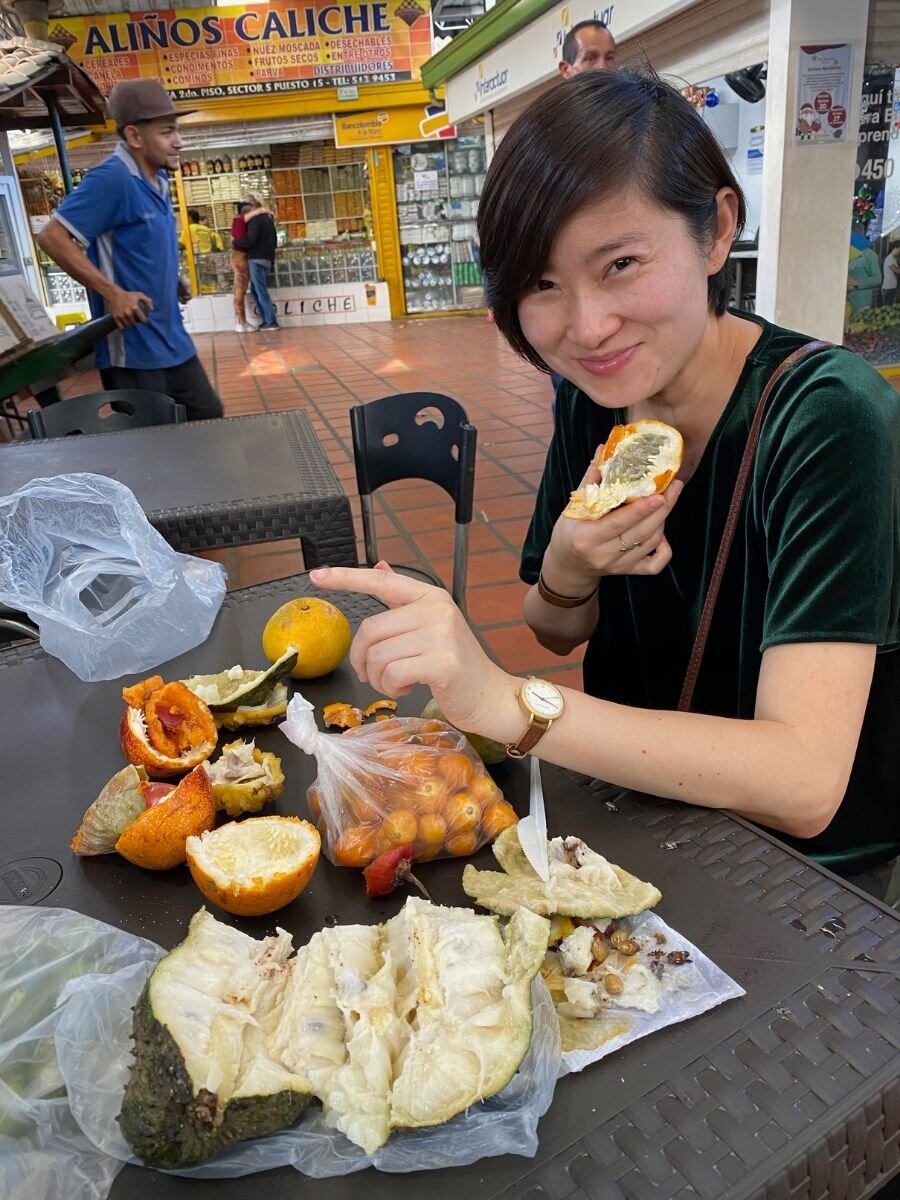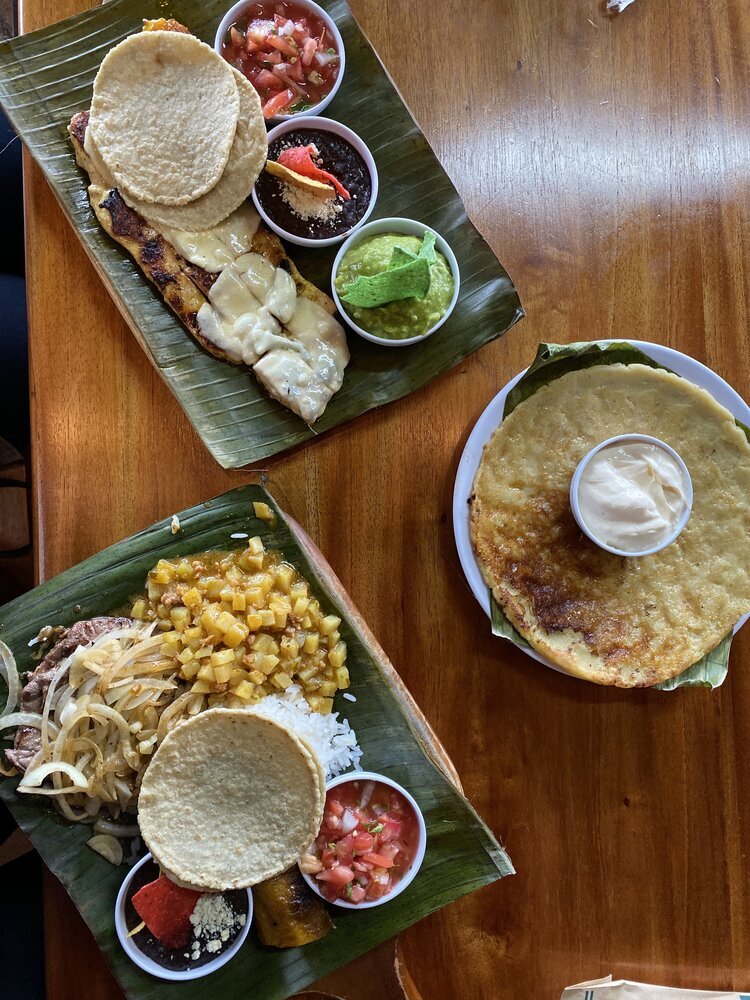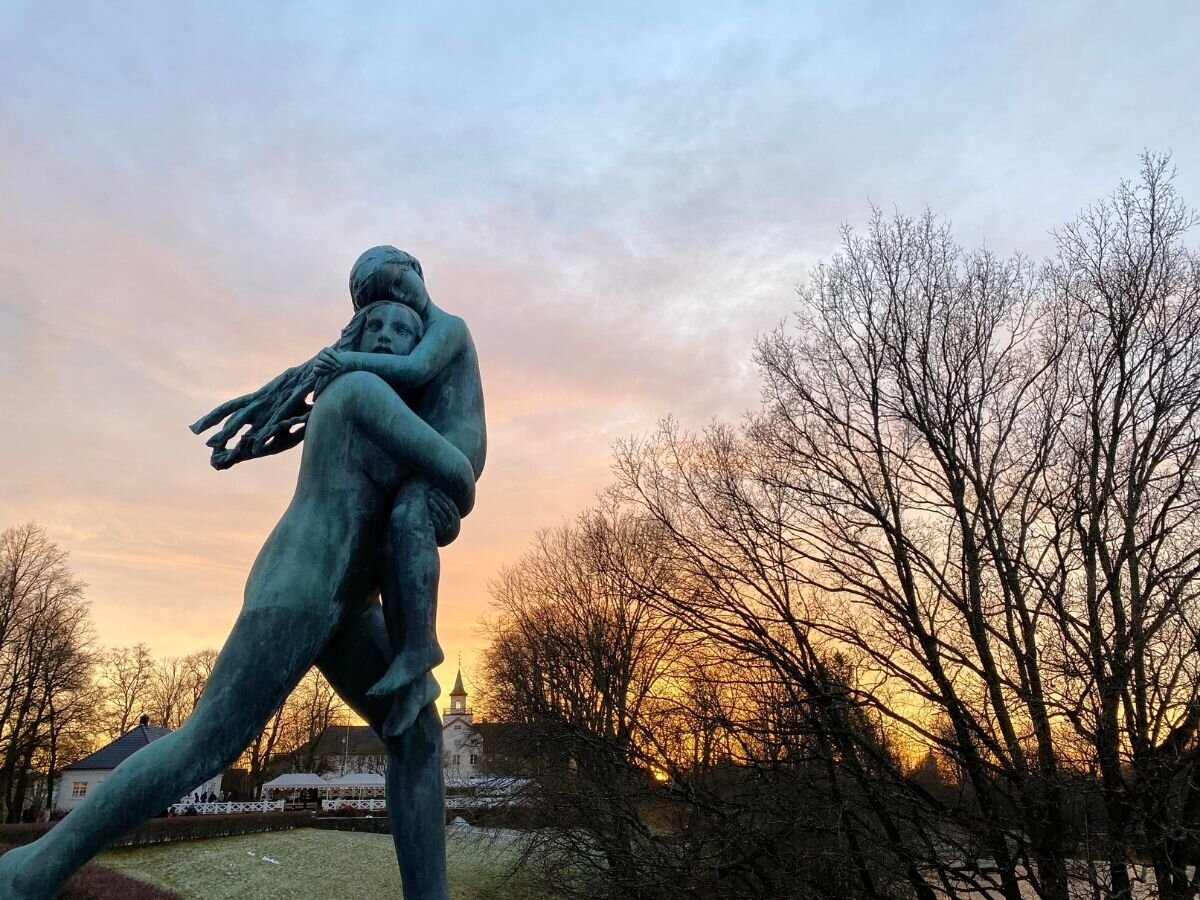10 Ways to Cut Costs While Backpacking Abroad
COVID-19 Update (8/22/20): Enjoy planning that Bucket List Life you’re going to live when this is all over.
How much did I spend on a once-in-a-lifetime day-trip to the iconic Cliffs of Moher? 25€.
Unlike How Not to Go Shit Broke, this post looks more closely at specific ways to minimize spending once you’ve finally started your trip. From mooching to reading the fine print to lying about your age, these are my tried-and-true tips for coming in under budget and having more financial freedom when adventure calls:
Find free walking tours.
First morning in a new city and you don’t know where to start? Join a free walking tour! You can find them in nearly every major tourist stop, seven days a week. The tours typically last 2-3 hours and are led by funny, energetic guides who balance history with controversy and insider tips. The best part? They’re completely free…besides a technically voluntary but don’t be an asshole tip at the end.*
You can spend the morning making mental notes of all the places you want to explore more in-depth, plus you’ll usually get the added bonus of a lunch break so travelers can [give money to the restaurant owner who cut a deal with the tour company and] have an opportunity to socialize with each other and ask the guide more detailed questions.
My free walking tour group in London, where I made day-long friends from Canada, France, Lithuania, Croatia and Mexico.
For me, the best perk of these tours is the opportunity to get to know people from all over the world. I have made so many incredible friendships—some lasting years and some an afternoon—simply by walking up to someone who was also standing alone and who looked as socially awkward as I felt, and asking, “Where are you from?”
(I could write a whole post on how incredibly privileged native English speakers are to live and travel in an era when English is the lingua franca, but I digress.)
Found someone as excited as I was to try every unfamiliar fruit in Medellín.
Not only can you make travel buddies to spend time with while you’re there, but you can make connections for free housing the next time you’re in their neck of the woods. (Holding the oddly-illustrious title of American Actress™ with housing connections in California and NYC doesn’t hurt, but I’ve met countless backpackers from middle-of-nowhere places who’ve encountered the same kindness.)
While it’s possible to find these tours by simply walking around the main square in the tourist center of nearly every city, the easiest way to find the most reputable ones are often through your accommodation. Especially if you’re staying somewhere budget-friendly like a hostel, you’re likely to be bombarded with pamphlets from their partnerships. Just hit up reception the night before for all the details.
*Re: free walking tours—Seriously, don’t be an asshole. They often get charged by the company per head (which is the real reason they take a group photo at the beginning), so if you don’t tip at least a couple bucks, they just paid to give you a heartfelt, entertaining, three-hour tour of the city.
2. Hunt down lunch specials.
Lunch feast in Cartago, Costa Rica
What’s the point of traveling if you can’t eat your way through the country? While I recommend grocery shopping and cooking your own food as much as possible, I know it’s unrealistic not to budget for local cuisine. Enter: The Lunch Menu. Even more so than in the U.S., restaurants abroad often offer big midday discounts. Just keep in mind that different countries operate on different meal schedules, and many cafes and restaurants will close mid-afternoon and reopen late in the evening.
It’s not uncommon for tourist centers to print cheap lunch specials in the local language only (on purpose, obviously), so prepare to use Google Translate Camera Mode. And if you make lunch your main meal of the day, maybe you can afford to share that homemade dinner with your new friends?
And if you want to save even more money without sacrificing the Authentic Experience™? Hunt down that street food. If you’re in a country where this is readily available, it’s often the more delicious and affordable alternative to restaurants anyway. And fine, depending how close you are to the equator, you run the small risk of getting sick, but if you don’t have a compromised immune system, live it up and accept the Turista/Dehli Belly Life as a reminder of your #globalnorthproblems.
How did I spend so little money in Bruges? By staying a whopping 24 hours on my way to a fling’s free bed in Lille, France.
3. Limit dining out.
Iceland is the 3rd most expensive country in the world. I wanted to go on a solo road trip. I also didn’t want to starve. What did I do? Stuffed my backpack with protein bars and other dry staples from home, and stocked up at local grocery stores.
(For reference, the US is the 20th most expensive country in the world. That $5 Footlong at Subway just became a $9 6-inch. So you can imagine real Icelandic cuisine was well out of my price range.)
PRO TIP: Do research about food markets in different countries beforehand! Some basic protocols differ from place to place. I had no idea many countries require you to weigh and label your own produce, so I held up a line of grumpy customers while the checker resentfully fixed my mistake. Don’t be that American.
A home-cooked meal shared with strangers in a middle-of-nowhere hostel in Spain. We scrounged together all the ingredients we could find between our backpacks and the tiny shop by the front desk.
Hands down, my most memorable meals while backpacking have been impromptu dinners with other people in my hostel—throwing all the different groceries we’ve been lugging around with us into a pile and seeing what comes of it, or cooking beside each other only to decide to share half of each person’s creation, and learning about each other’s cuisines and cultures through the process.
While I always give myself permission to splurge on at least one restaurant with the quintessential cuisine of its region, these homemade dinners usually steal the spotlight of my nostalgia long after the trip is over.
4. Get those steps in.
Are you able-bodied and broke?
Then Walk. All the time. Everywhere.
This is my favorite way to get everything out of a city that I can. It’s where the magic happens and what sparks the best impromptu photos. I’ve easily saved hundred of dollars due to minimizing my use of any other type of inter-city transportation.
And it solves my biggest ongoing problem while traveling:
How do I work up an appetite so I can try this eighth pre-dinner snack?
Bandeja paisa: originally made to fuel Colombian field workers, and perfectly doable after a lil ten-mile walk. (That’s a lie. I did not even come close to finishing this, even with help.)
5. Bid privacy farewell.
Booking accommodations on the go is a common practice when backpacking, especially if you’re the spontaneous type and want to country/city-hop as you please. I should probably take my own advice on this considering the number of times I’ve planned every moment of a trip and then completely changed course as soon as I arrived.
Hostels are an easy option for last-minute booking…but what if the once-in-a-lifetime opportunity to bond with people from all over the world isn’t your jam and you’re lucky enough to be in a city with cheap Airbnbs but you don't want to contribute to inflated housing costs and a ravaged local economy??? (You can see where I stand on this.)
Do your research. If you must use Airbnb, stay in houses or private rooms rather than apartments. Obviously this advice is purely based on my personal moral compass and is not necessary for budget travel. I have found some great Airbnbs that offer private rooms but communal kitchens, which give you the opportunity to meet other travelers without sacrificing privacy.
Free and delicious several-course community dinner at Albergue Verde in Hospital de Órbigo, Spain.
But I get it. Sometimes I go with Airbnbs because it’s actually cheaper than a private room in a hostel. And while #notallhostels are awful party hostels, I’ve gotten bed bugs way too many times despite almost always neurotically checking my mattress in shared dorms. So, you know, my bad luck has led me to “flashpack” a little more than I used to.
An easy way to check the degree to which your Airbnb option is morally questionable is to check out how many other properties the host has listed on the site. If they’re renting an entire apartment building to tourists, consider finding other accommodations. While I’m all for empowering others to travel on a budget, I don’t believe our access to life experiences should ever occur at the expense of locals who can no longer afford housing because of over-tourism and gentrification.
If you’re really on a starving artist’s budget but don’t want to sacrifice privacy, check out Couchsurfing (as of COVID-19, the website has implemented a small membership fee) and select “private room” in the search settings. It’s a lot harder to confirm accommodations ahead of time when you’re dealing with other people’s schedules, but I’ve had some wonderful luck when booking a stay at the last minute. For more detailed information on pre-planning accommodations, check out this post.
My Couchsurfing host in Budapest insisted on treating me to a fancy dinner and traditional Hungarian dessert. I did not complain.
6. Do math.
Stay in hostels with free or discounted breakfast! They’re often buffet-style and some are swanky hotel-quality (two standouts are the Jazz Hostel in Bled and the MEININGER Hostel in Brussels). Some hostels include free or extremely cheap communal dinners which are perfect opportunities to socialize with people from other countries and make international friends. Also look for places that specify free linens, towels and wifi, since many lower-cost accommodations sneak these in as additional fees.
When it comes to transportation (especially between countries), take the time to research bus vs train vs car vs plane vs feet. Does it make sense to take an overnight bus if it means you save money on a night of accommodations? Do you really need to get where you’re going in an hour or can you forego that expensive train?
Sure, Norway is the second most expensive country in the world, but the sprawling sculpture installation in Oslo’s Frogner Park is free.
For sightseeing, are you really going to go to eight museums in one week in order to break even, or can you skip the tourist-trap all-inclusive fastpass? Depending on the city and your interests, it might either be a steal or a colossal waste of money.
7. Stay ahead of your budget.
A look inside the Trail Wallet app from their website
Use apps like Trail Wallet to set a daily limit for yourself and track expenses. Especially with the ever-changing conversion rates when country-hopping, having a daily check-in with yourself for accountability can make all the difference, especially when you’re in it for the long-haul.
One way I minimize foreign transaction fees is by using my credit card for all electronic transactions, and dipping into real money when I need cash. This way I avoid withdrawal limits/interest on my credit card, and sleep well knowing I have a good amount of real, tangible money if I ever need it. It’s up to you to gauge your level of comfort vs. need when it comes to carrying around a bunch of cash. Hopefully you won’t wear your money belt on the outside of your clothes like I did in Paris.
I use Bank of America, which charges a flat $10 fee for every debit card withdrawal, so I really try to make it last and use card whenever I can.
While it feels absolutely disgusting to advertise a major bank product, I will say that I shopped around for a long time for the “perfect” travel credit card and landed on the Bank of America Travel Rewards card for the following perks: zero foreign transaction fees, 1.5 points for every dollar you spend which can be redeemed retroactively toward any amount spent on travel, zero interest for one year and a huge point bonus. Until I can find a credit union which doesn’t make feeding myself abroad a major headache, I’m sticking with the devil.
8. Milk that youth.
You heard me. If you’re a student (or thought ahead after graduation!), use your ID to get discounts for almost EVERYTHING. The only time I’ve ever had trouble with this was in Athens. I used my (cough several years old) student ID to get a sightseeing card for 50% off without a problem, but when I went to the Acropolis line and showed my discounted ticket, I was denied entry after they saw that my student ID didn’t state the date of graduation. I got out of line and sulked for a bit, pretending to connect to the wifi to show proof of enrollment (which was, of course, bullshit), but then I remembered there were multiple entrances and tested my luck with another guard, who had no problem letting me in with my already-purchased discounted ticket. The whole fiasco was embarrassing and stressful, but the amount of money I’ve saved by risking my ego at nearly every tourist attraction has made the stress worth it. To each their own with this one.
A completely free view of the Acropolis from an allegedly very important rock.
9. As always, do research.
Research free attractions wherever you are. Not only do many museums have a free or discounted night every week, but some (like in London) are free all the time! Many museums also don’t advertise that their admissions price is suggestive only, like the Met in NYC. Most cities also have plenty to see and do that are always free, of course, like walking through different neighborhoods, checking out famous markets, admiring architecture, and wandering the parks.
10. Bend the rules.
Lol get it? Cuz I’m doing a backbend after sneaking onto the roof of the Real Alcázar de Sevilla (aka Dorne from GoT).
In case you couldn’t already tell, this is probably my most frequently-used method of saving money while traveling. As well as finding ways around sightseeing expenses, I’ve discovered ways around travel fees with a lot of trial and error over the years. I used to get really excited when I’d find a dirt-cheap flight, but I’ve learned to read the fine print—
Many discount airline prices seem too good to be true until you show up at the airport and the check-in kiosk slaps you with a hefty fee for being slightly over the meager carry-on weight allowance. Plan ahead and pack down your backpack as much as possible before heading to your gate with these sneaky tips:
Wear several layers to the airport and stuff things in your pockets so your backpack appears smaller (I confess I have also stuffed my bra…and once wore a secret backpack underneath my coat that housed my laptop and toiletries and which made it look like my butt was huge. I rightfully assumed no one would ask questions).
You can wear yoga pants under jeans, layer a couple shirts, wear your bulkiest shoes and jacket(s). You can also stuff your pockets with socks or gloves, just to be sure you won’t get that steep last-minute charge as they haul your backpack away to be found at baggage claim, broken and uninsured. (Thanks, Ryanair.)
I’ve gotten it down to an art form. This 30-liter backpack fit my whole life for two months.
I brought a 36L backpack on my last five-month trip, but I still needed to get creative to meet the weight requirements for those affordable flights. This all might sound like a lot, but it becomes second nature pretty quickly. And while it’s probably unacceptable behavior for a full-grown adult, it has saved me thousands of dollars over the years thanks to the freedom to buy those shockingly cheap, no-frills flights.















